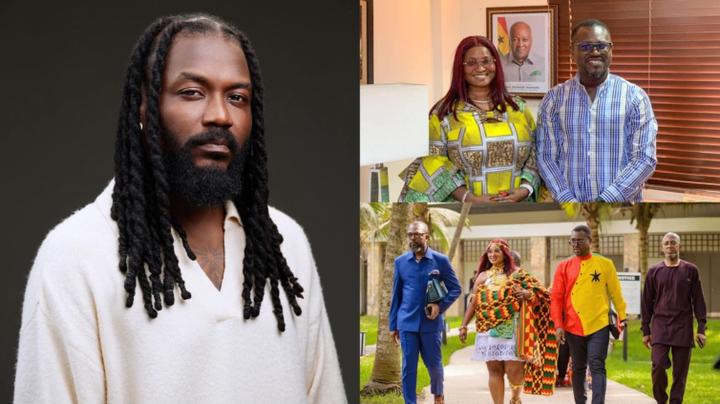Recently, social media has seen a surge of criticism from some NDC supporters targeting the Ghana Tourism Authority (GTA) over a potential partnership with celebrated musician Samini. In response, Amelley Djosu has called for an end to the politicization of national institutions and urged Ghanaians to unite behind the country’s creative industries.
Djosu describes the trend of politicizing cultural platforms as “disturbing,” emphasizing that the creative sector in Ghana already faces significant challenges and should not be a space for division. Instead, she argues, the creative industries—including artists, media houses, and tourism promoters—share a vital common goal: showcasing Ghana’s rich culture and vibrant identity on the global stage.
She stresses that politicizing bodies like the GTA and restricting their support to artists aligned with a single political party weakens Ghana’s collective brand. Unity in the creative space is not just desirable—it is essential for a diverse and culturally gifted nation like Ghana.
Highlighting Samini’s impressive career, Djosu recalls how the Afro-Dancehall pioneer has consistently celebrated Ghanaian culture and unity for over two decades. From his early days in Wa to international recognition, Samini has been a cultural ambassador, uniting communities across Ghana and the diaspora. His recent single “CHAANA,” featuring the Grammy-winning Soweto Gospel Choir, embodies themes of unity, pride, and Pan-African strength, mirroring the spirit of his upcoming album ORIGIN8A.
Beyond music, Samini’s involvement in national events and social campaigns exemplifies how creativity can bridge divides and inspire collective progress.
Djosu insists that the GTA must be viewed as a truly national institution, representing all Ghanaians irrespective of political affiliation. Demanding that the authority only promotes artists connected to one party alienates talents, breeds distrust, and undermines national unity.
She cites the success of initiatives like the Year of Return, Beyond the Return, and Detty December, which thrived because they included creatives and stakeholders across political lines. Had the GTA limited itself politically, their impact and magic would have been severely diminished.
Unity, Djosu contends, amplifies excellence rather than compromising it. Collaborative efforts between artists and institutions create powerful, authentic messages that strengthen Ghana’s creative ecosystem—from music and film to fashion, food, and digital content.
She advocates for transparent, fair practices within institutions like the GTA, including clear criteria for brand ambassador selection, balanced advisory boards, and continuous engagement with creatives regardless of political background.
Djosu calls on Ghanaians to mature politically and appreciate talent and contributions beyond partisan perspectives, recognizing the creative economy as a transformative tool for the nation. It can redefine Ghana’s global identity, empower youth, and attract investment—if protected from division.
Using Samini’s journey as an example, she urges everyone to celebrate artists for their merit and contributions, not their politics. The future of Ghana’s creative industry depends on embracing unity over rivalry, progress over pettiness, and vision over division.
Source
